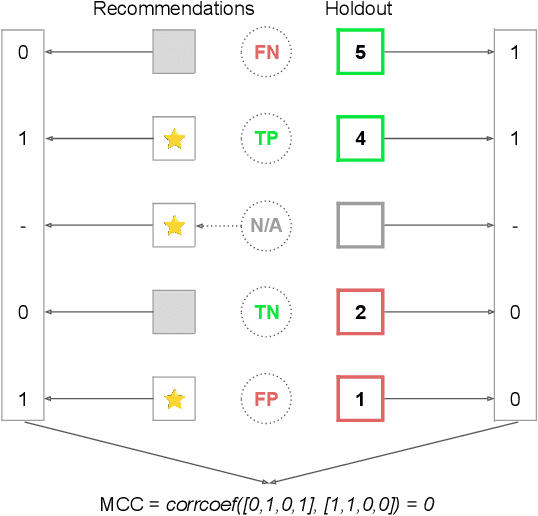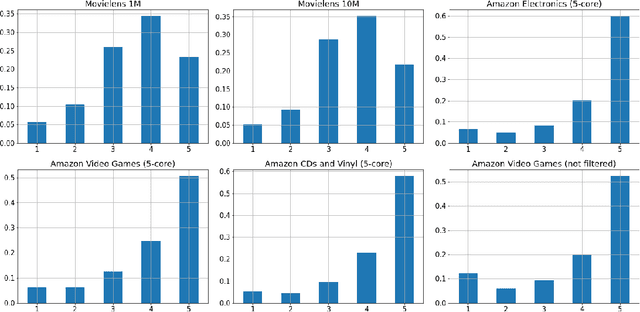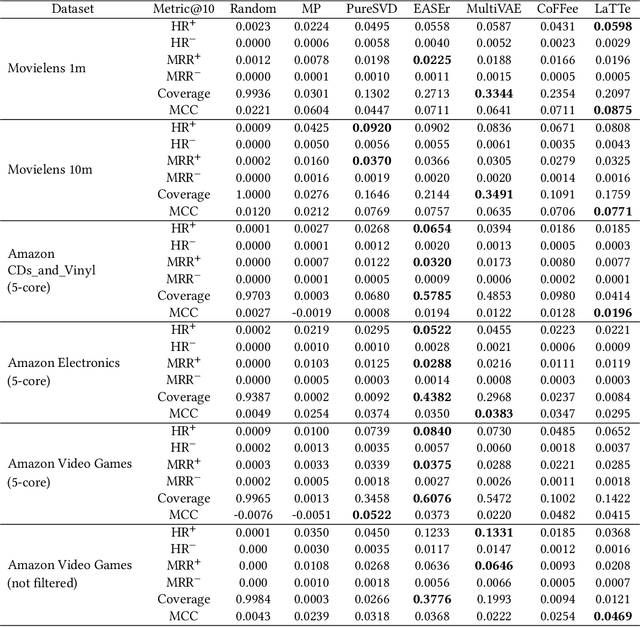Vladimir Chernyy
Tensor-based Collaborative Filtering With Smooth Ratings Scale
May 10, 2022



Abstract:Conventional collaborative filtering techniques don't take into consideration the effect of discrepancy in users' rating perception. Some users may rarely give 5 stars to items while others almost always assign 5 stars to the chosen item. Even if they had experience with the same items this systematic discrepancy in their evaluation style will lead to the systematic errors in the ability of recommender system to effectively extract right patterns from data. To mitigate this problem we introduce the ratings' similarity matrix which represents the dependency between different values of ratings on the population level. Hence, if on average the correlations between ratings exist, it is possible to improve the quality of proposed recommendations by off-setting the effect of either shifted down or shifted up users' rates.
 Add to Chrome
Add to Chrome Add to Firefox
Add to Firefox Add to Edge
Add to Edge